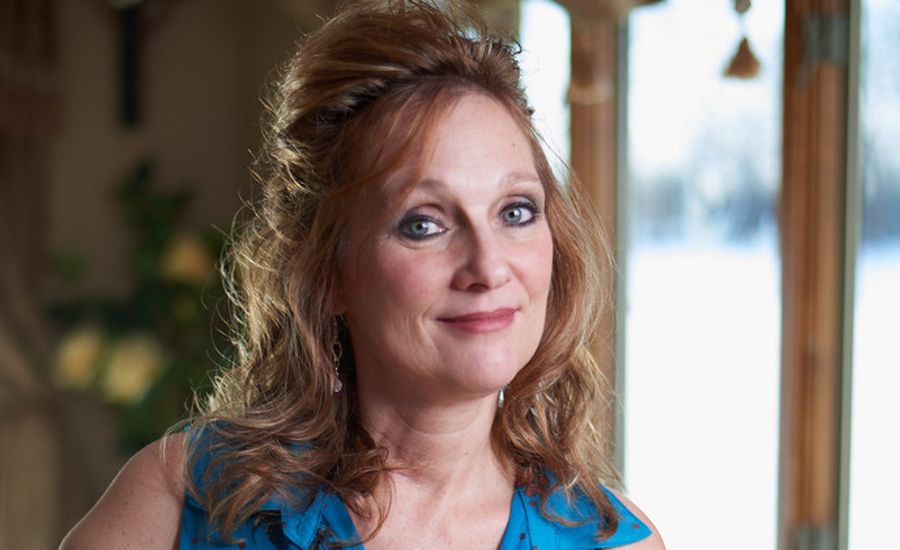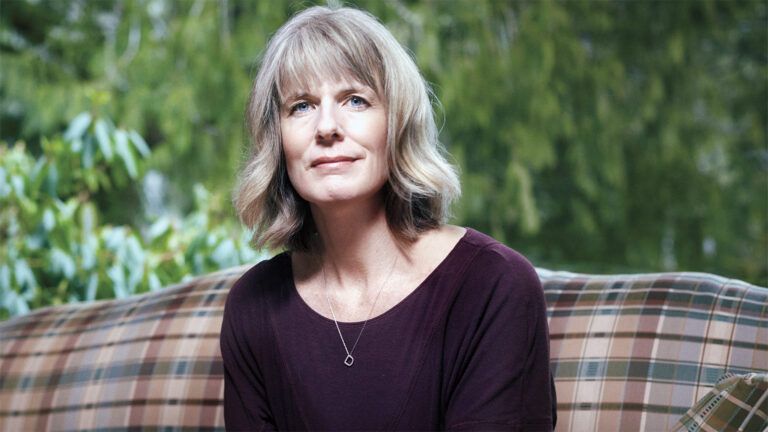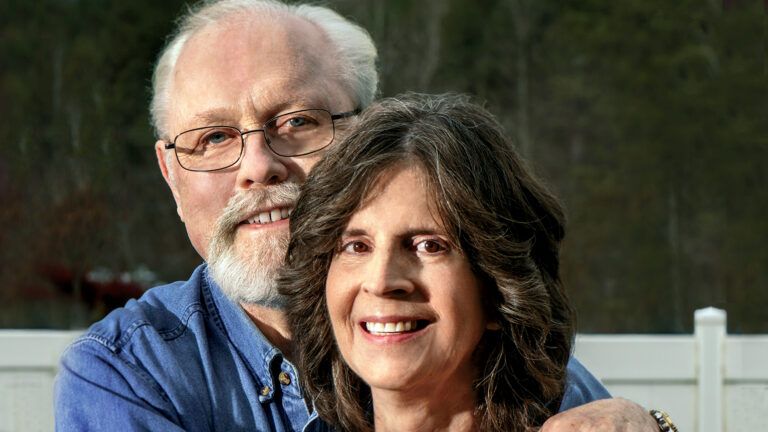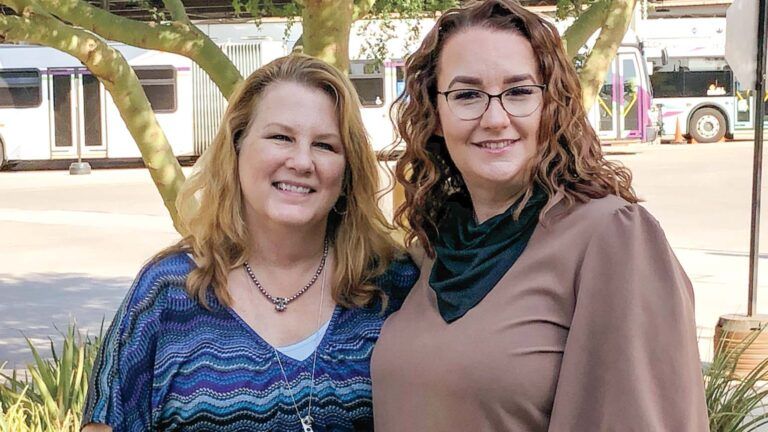For me, cancer was a journey. A lot of people say that, but I learned things about myself that I never would have guessed and grew in ways I couldn’t have imagined. It was a journey I resisted, but not for the reasons you might think.
In some ways I was less afraid of cancer itself than of all the attention that would be drawn to me. If anything, I was determined to be the perfect patient, cooperative, dutiful, undemanding. Almost under the radar.
Get hope for Breast Cancer here
You see, I was a middle child—number 7 of 10 kids, easily overlooked. My older brother and sisters could tell stories that would leave us howling. I was happy to listen and laugh and follow along, as long as nobody paid much mind to me.
If you saw pictures of us from back then, you’d see me hiding behind a pair of huge glasses, my skinny frame covered up by loose sweaters. Classic middle kid. Pleasant but a little anonymous.
We grew up on a 160-acre farm that Dad ran, and we were expected to do lots of chores. Even before school we milked the cows, fed the chickens and pigs, weeded the garden. In some families if you got sick you stayed home, your mom cooked you special things and you watched TV all day.
Our mom was an RN. You had a headache? Take an aspirin and don’t complain. You woke up with a tummy ache? She’d give you some Pepto-Bismol and send you to school.
No surprise, I was a shy kid. I hated to be called on in class. In college I studied to be a respiratory therapist. Like my mom, I wanted to work in health care. I was good at looking after others, good at caring for them, giving them plenty of attention, putting them in the medical limelight.
Find out more about one of Guideposts.org’s sponsors: Cancer Treatment Centers of America
I married Duane and we raised our two kids, Kira and Brad. I loved being a mom and a wife. I made sure I looked good too—makeup, hair, neat but not flashy clothes. Right in the middle between glamorous and frumpy, so I wouldn’t stand out.
Then tragedy struck, like chain lightning. Mom broke her femur, her leg was amputated and a terrible infection developed. She died shortly after going into the ICU. Then Dad, who had never been sick a day in his life, was diagnosed with cancer. A month later my sister Beth told me she had breast cancer.
I was waiting for the other shoe to drop. What if I had cancer? What if I got a biopsy like Beth’s and had to do chemo and radiation and all the rest?
As long as nobody makes a big fuss over me, I told myself. It was as though people fussing over me, paying me all that attention, would be even worse than dying.
The other shoe finally did drop. I got my breast-cancer diagnosis a year after Beth’s; I would need surgery, chemo and radiation. My biggest concern the day before my double mastectomy was making sure the house looked nice. I hated to leave a dirty house. I spent the whole day vacuuming, dusting and preparing meals for the family.
I was low key about my surgery. Duane seemed more nervous than I did. “I’m not going to die on the operating table,” I told him. “They’re just going to cut out the cancer”—as if the tumor could just be unplugged.
In the hospital before going to the OR I gave him all my jewelry, including my wedding ring. “I’ll be back in five hours,” I said. More than five hours later, I fought through a post-anesthesia haze as they wheeled me into my room. Friends faded in and out.
At one point Duane took my hand and slipped on my wedding ring. “Will you marry me?” he asked.
“In a minute,” I said groggily. “I’d marry you again and again.” In the midst of all that trauma there was something so sweet about that. My heart stirred. The next time I woke up, the nurse was checking my vitals.
“You must be very special,” she said.
“Yeah,” I said, feeling depressed about my loss, anything but special.
And then I noticed them. It was as if I were waking up in a florist’s shop. Flowers were everywhere—roses in every color. It unsettled me, not just the beauty of it all but the attention, the trouble everyone had gone to. People passing my room stared, as if I was somebody more special than plain old me, Jeanne.
Duane came to all my chemo sessions and sat beside me, reading or chatting, while the IV dripped into my arm. I tried to act as though it were a date, just the two of us together, but oh, how I hated the effects the chemo had on me—the fatigue that stripped me of all my energy, the hair loss.
I could hear hair falling on the newspaper at the breakfast table; clumps of it lay on my pillow in the morning and clogged the drain in the shower. The fourteenth day after chemo began, just as my doctor had predicted, the rest of it came off.
I called my grown daughter, Kira, and asked her friend who cuts hair to come over and shave my head bald. Our son, Brad, shaved his head out of solidarity. So did my older brother Mike. Sweet but unnecessary. Now everyone would be staring at them.
I tried a wig. I wore scarves. But I couldn’t dodge the looks, couldn’t escape them. It was as though I were wearing a big sign: Jeanne Is Getting Treated for Cancer. Please Notice Her.
One day at the hospital where I’ve been a respiratory therapist for years, one of the doctors stared at me slackjawed, eyes wide with shock. I wanted to shout across the room, “Can’t you keep your reaction to yourself?”
My supervisor was very understanding, but I didn’t know what to do with the comments from colleagues. “How are you feeling, Jeanne?” “How are you doing today?” “How is your family coping?” “Is there anything I can do for you?”
All I wanted to say was, “I’m fine,” even if I wasn’t feeling fine. Even if I felt rotten I didn’t want to talk about it, didn’t want all the focus on me. My siblings called constantly or dropped by with groceries, Beth especially, because she knew what I was going through.
Or maybe she didn’t. Part of me simply wanted to be left alone. I needed to take some more days off work, but I’d used up all my vacation and sick days. I couldn’t afford to take any more.
I talked about it with my supervisor, wondering how we could work something out. The next time we talked she explained I would have enough days because my colleagues had donated their unused vacation days. They’d transferred them to me.
I hardly knew what to say. I got off the phone with tears in my eyes, dumbfounded, stunned but yet somehow embarrassed. How would I ever be able to repay all those people?
The last straw for me came at the end of radiation. I was meeting my older sisters Kerry and Laure at a fish-fry place for lunch after my last session, because seafood was about the only thing I could keep down.
Getting out of the car I felt something brush against my cheek, like butterfly wings. But it was the middle of winter. Even after lunch, driving home, I had the same odd sensation around my eyes.
At the house I dashed upstairs to the bathroom and looked at myself in the mirror. I’d lost my eyelashes. Gone. Like my hair, my eyebrows, my energy, my figure. I stared at the scars from surgery, the burns on my chest from the radiation, the face that looked naked. I broke down in tears.
“I don’t want to do this anymore!” I shouted to God and to my own image. I was tired of being the perfect patient, tired of being poked and prodded and tested and asked about and stared at, tired of being patient, tired of being tired. “Lord, I want things to be normal again! I want to be plain old Jeanne again!”
At the end of my tears, at the end of my shouting, a weird calm came over me. The woman in the mirror was still without eyelashes or hair, without mascara, but she looked beautiful to me. She was loved, nurtured, worthy of a thousand bouquets of roses and hundreds of paid vacation days, not to mention her husband’s devotion and her family’s love.
You are the center of my attention, Jeanne, God seemed to be saying. And I will never let you leave my sight.
I let myself relax, completely relax, as if at long last I could accept the love and attention. I’d had a hint of it when my husband slipped my wedding ring on my finger again. A sweetness, the strength to be cared for, to accept comfort and help and, yes, fuss.
Like I said, cancer led me on a journey of self-discovery. It was harder than I could ever have imagined—I don’t want to discount the physical challenges treatments pose, the pain and exhaustion—but I became someone new, a different Jeanne.
It’s been five years now that I’ve been cancer free, and I do something that I could never have done before cancer, and can barely believe I do now: I speak out to anyone who wants to hear me. I talk to support groups, nursing students, cancer patients and family members.
I tell anyone who is going through the trials of cancer that they can make it, that God will be with them even on their worst days—especially then. They will be the center of his attention. But they will be different than they were before. And for me, that difference has been to accept God’s care and to turn it back to others.
Download your FREE ebook, Rediscover the Power of Positive Thinking, with Norman Vincent Peale.





